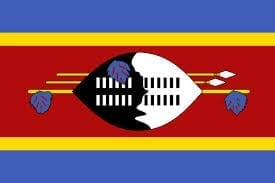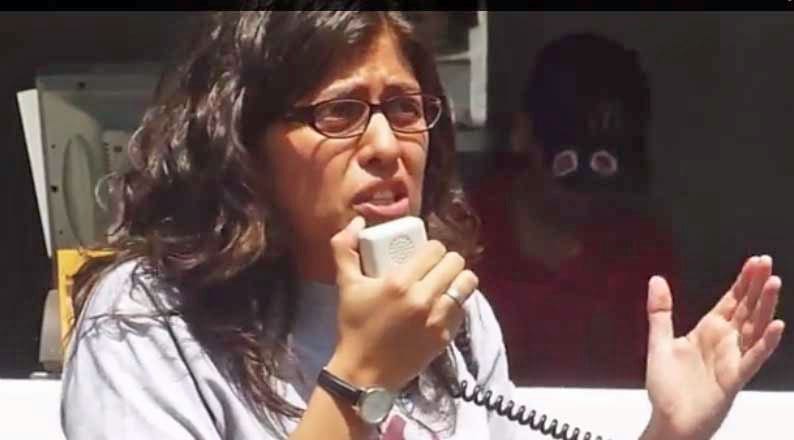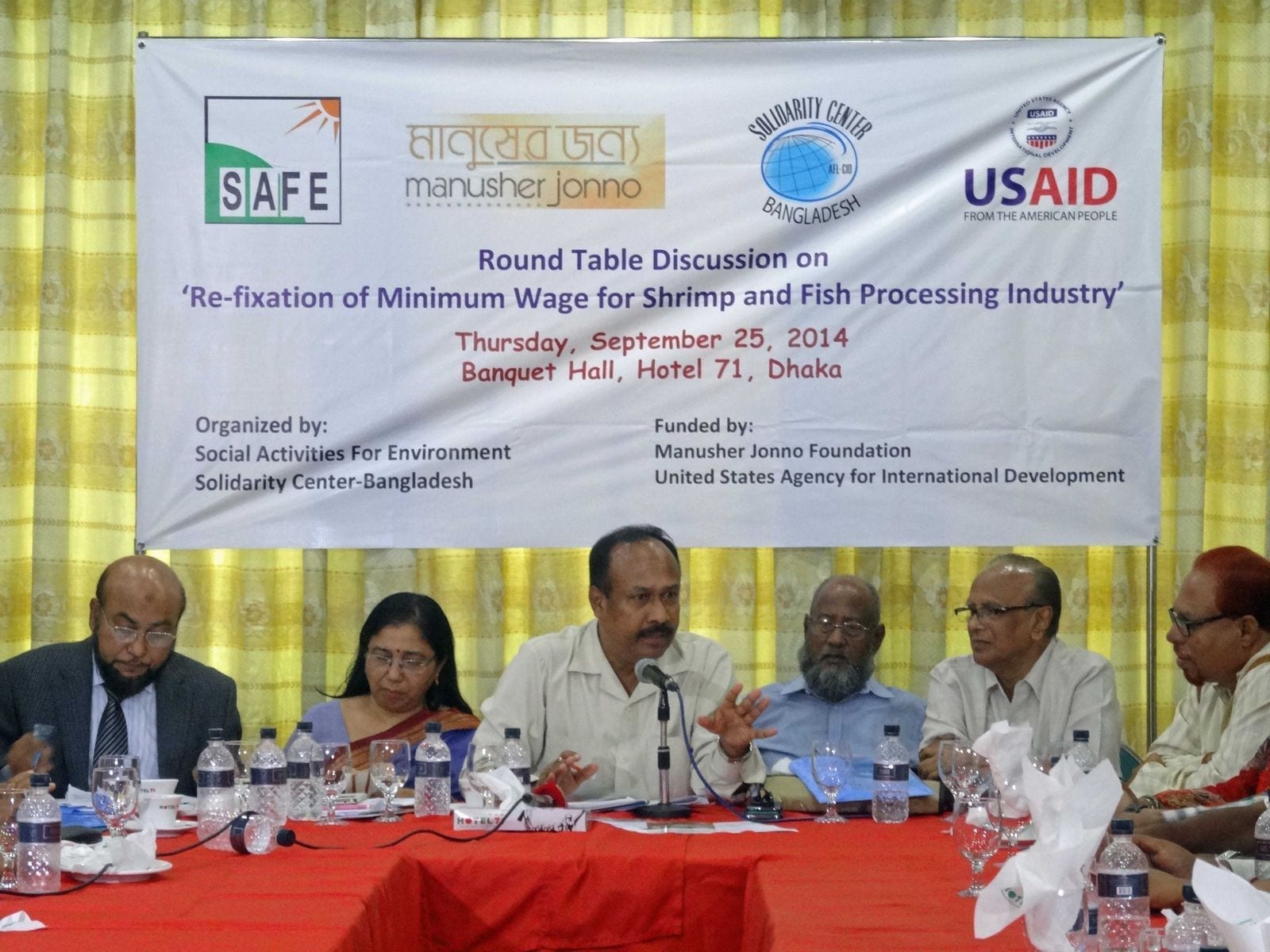
Oct 9, 2014
Swaziland has ordered all worker and employer federations to stop operations immediately, a demand issued yesterday in a resolution by the government cabinet. The order effectively disbands the Trade Union Confederation of Swaziland (TUCOSWA), a Solidarity Center ally.
Minister of Labor and Social Security Winnie Magagula, quoted in the Times of Swaziland, said that in the wake of the resolution, “all federations are non- existent in terms of the Industrial Relations Act and should stop operating immediately until the amendment of the Industrial Relations Act has been passed by Parliament.”
The move runs counter to international labor standards, including the right of freedom of association.
“This is a blatant and outrageous attack on the ability of working people to form associations of their choice and stand up for their rights,” said Solidarity Center Executive Director Shawna Bader-Blau. “By denying workers a voice at work, the Swazi government is preventing workers from achieving safe and healthy workplaces and wages that will support themselves and their families.”
A recent TUCOSWA survey of more than 400 textile workers in Manzini, Swaziland, found that workers in the textile sector are subject to harsh and sometimes abusive conditions, many of the country’s labor laws are routinely violated by employers, and union activists are targeted by employers for punishment.
In June, the U.S. government took the rare step of suspending African Growth and Opportunity Act (AGOA) trade benefits for Swaziland, citing the Swazi government’s systematic violations of fundamental worker rights, including lack of ability for unions to register.
Magagula was quoted as citing the International Labor Organization (ILO) as directing the move, a charge the ILO unequivocally denies.
Condemning the action, AFL-CIO International Director Cathy Feingold wrote in a letter to Swazi Prime Minister Sibusiso Dlamini that it “is the latest in a series of actions designed to repress and restrict legitimate trade union activities in Swaziland.”
Sharan Burrow, International Trade Union Confederation (ITUC) general secretary, said, “We demand that the ruling be rescinded immediately.” The ITUC also sent a letter to the Swazi prime minister, condeming the move.
In August, some in the Swazi government falsely accused TUCOSWA General Secretary Vincent Ncongwane and human rights lawyer Sipho Gumedze of taking a stand against AGOA benefits for Swaziland when they were in Washington, D.C., as part of a delegation of 40 African trade union leaders.
The 2014 U.S. State Department human rights report cites serious human rights violations in Swaziland, including arbitrary or unlawful killings by the government or its agents; severely restricted freedom of assembly, including violence against protestors; jailing of trade union leaders; the deregistration of TUCOSWA and the banning of strikes.
Oct 7, 2014

The Ebola crisis highlights how women’s dual roles as workers and caregivers puts them on the frontlines of low-wage, unsafe work. Credit: Impatientoptimist.org
Unions worldwide are mobilizing around World Day for Decent Work, held annually on October 7 to raise public and official awareness of the critical need for labor rights for the vast numbers of workers who toil in unsafe, unhealthy conditions; receive wages that cannot sustain them and their families; have no voice at work through union representation; and no access to retirement security, health care or other fundamental protections.
Some 39 percent of the global labor force—1.2 billion women and men—live in poverty, surviving on less than $2 a day per person. With fewer jobs available in the formal economy, millions of workers are forced to survive by laboring as street vendors, domestic workers and cab drivers. The vast majority of these informal economy workers are women.
In fact, gender equality is at the heart of decent work. Working women—and the caring work women do, such as taking care of the family and running the household—are central to enabling communities to function and thrive. Yet women work in the lowest-paid jobs, have less access to union representation, and often suffer from violence and other abuses both at work and in the home.
The ongoing Ebola crisis highlights the extent to which women workers are on the front lines, performing difficult tasks in dangerous and even deadly environments: In the 2001–2002 Ebola outbreak, 75 percent of people killed by the virus were women. In the current epidemic, women account for more than half of all Ebola cases throughout West Africa, while in Liberia, up to 75 percent of those killed by Ebola have been women.
Women have disproportionately contracted Ebola for reasons that illustrate the extent to which women have been denied decent work.
Women predominate in the health care sector, where in West Africa they care for Ebola patients in facilities that do not have proper protective equipment and procedures. Women serve as primary caregivers at home, where they are exposed to the deadly disease while nursing loved ones who have fallen ill. And women, many of whom are principal or sole economic providers for their families, are disproportionately poor and are concentrated in the low-wage informal sector, where there is little or no access to health insurance or the financial resources that enable them to take precautions against the virus.
In Liberia, 30 percent of households were headed by women in 2009, and 90 percent of Liberian women workers toil in the informal economy or agriculture, according to the World Bank. Research in Guinea has shown that the load of family and professional activities on women translates to 15 hours to 17 work hours a day.
Seriously examining why women disproportionately contract Ebola would mean “tackling systemic problems, such as women’s unequal access to adequate health care or the finances they might require for treatment,” writes Lauren Wolfe, director of Women under Siege, a journalism project on sexualized violence. “In short, it would mean challenging fundamental and dangerous disparities.” The same inequalities that result in a lack of decent work for women.
As Columbia University epidemiology professor Wafaa El-Sadr told Wolfe: Looking at who dies in an outbreak “shows you who has power and who doesn’t.

Oct 7, 2014
Alejandra Ancheita, founder and executive director of the Mexico City-based ProDESC (Project for Economic, Cultural, and Social Rights), today won the prestigious international Martin Ennals Award for Human Rights Defenders.
The award recognizes her courage and tireless search over the past 15 years for new ways to advance the rights of some of the most vulnerable workers in Mexico, including mine workers, migrant workers, child laborers and agricultural workers.
Ancheita, a Mexican lawyer and activist who leads the fight for the rights of vulnerable and excluded workers, migrants, communal landowners and indigenous communities, founded ProDESC in 2005. ProDESC is a long-time Solidarity Center ally whose work includes an ongoing campaign seeking justice for miners denied their right to organize for improved working conditions at the La Platosa mine in La Sierrita, Durango, Mexico.
“The award demonstrates that power can be held accountable and that worker activists, union leaders, students and others who literally risk their lives for justice do not fight unnoticed or alone,” says Solidarity Center Executive Director Shawna Bader-Blau. “We’re so excited that Alejandra has received this honor and humbled to stand with her and ProDESC in the struggle for worker and human rights throughout Mexico.”
The Martin Ennals Award for Human Rights—known as the “Nobel” of human rights awards, is selected by the international human rights community and given to human rights defenders who have shown deep commitment and face great personal risk. Members of the organization include Human Rights Watch and Amnesty International.
Watch a video about Ancheita.

Sep 29, 2014
Mukta, who works in a shrimp factory in Khulna, Bangladesh, makes $50 per month but that wage is not enough to support his family.
“Although employers should raise wages every year according to the law, they don’t follow the rules,” he said. “I have worked in my factory for nine years and my salary has increased only once.”
Mukta joined a meeting on the wages in the shrimp and fish processing industry with representatives from labor, business and civil society last week. Organized by the Solidarity Center and Social Activities for the Environment (SAFE), the event in Dhaka, the capital, featured Md. Mujibul Haque Chunnu, state minister at the Ministry of Labor and Employment.
The government recently directed the Minimum Wage Board to reassess the minimum wage for workers in the shrimp and fish processing sector. The board, established in 2009, has not revisited the wage level since then.
“It has been five years since the minimum wage was reviewed in the sector,” said Solidarity Center Bangladesh Country Program Director Alonzo Suson. “Now is the time to move toward a new consensus for a living wage for workers in the shrimp industry. A new minimum wage level will not only benefit the workers but the entire community and can make good business sense for a more productive sector.”
Representatives from SAFE, the Bangladesh Frozen Foods Exporters Association (BFFEA) and an academic from Rajshahi University presented their analyses and recommendations based on current conditions and wage levels in the sector. Participant, including union leaders, members of parliament, employers and nongovernmental organizations, then engaged in a vigorous discussion.
Shaheen Anam, executive director of the Manusher Jonno Foundation, a human rights foundation that helped support the event along with U.S. Agency for International Development (USAID), noted the improved working conditions in the shrimp and fish processing sector which resulted from the work of “labor activists over the last several years.” But Anam pointed out that “these activists have faced a lot of threats … especially in the Khulna region.”
In 2013, the BFFEA, the Bangladesh Shrimp and Fish Foundation (BSFF) and the Solidarity Center signed a memorandum of agreement to implement worker rights according to Bangladesh labor law and International Labor Organization (ILO) core labor standards and to give workers the right to form trade unions.
Sep 29, 2014
[Read the full report in English and in Arabic.]
The Word Bank released a draft labor safeguard in July 2014. After consultations, a revised version will be released in 2015. The global labor movement and the International Labor Organization (ILO) are concerned about some significant gaps in the draft labor safeguard, specifically that it does not guarantee freedom of association and the right to organize and bargain collectively, and that the safeguards would not apply to contract workers. This is in stark contrast to the labor safeguards of other lending bodies, such as the International Finance Corporation (IFC) and the European Bank for Reconstruction and Development and the African Bank for Reconstruction and Development. While the World Bank professes a reluctance to infringe upon a country’s sovereignty, the vast majority of World Bank’s members are also ILO member states, and therefore already committed to the principle of freedom of association.
The need for a World Bank mechanism to support loan recipients to uphold this principle is illustrated by the example of the electricity sector in Iraq. In 2007, the World Bank awarded the Iraqi government a $124 million loan for reconstructing and rehabilitating the electricity sector. During the loan period, the Iraqi government carried out a campaign against the electricity unions in an attempt to silence them for bringing to light the issue of widespread corruption in the sector. As workers’ right to freedom of association was stifled, so was the ability to raise concerns with the project through a clear grievance mechanism, such as those guaranteed through IFC private-sector loans.
Deterioration of Electricity Supply Spurs Widespread Protests
In 2008, the electricity unions began organizing rallies throughout Iraq to protest the deterioration of the services provided to citizens, called for sectoral reform and decried financial and administrative corruption reportedly to be rampant at the ministry. In public statements, the unions reported false contracts and power stations that were supposed to be built, but never were. In mid-June 2010 a wave of protests and demonstrations against the ill-equipped electric power generation and distribution system swept the country. In Basra, two demonstrators were killed and three others wounded. Although the official media reported this as an accident, when the Provincial Council security fired shots in the air to disperse the crowd, demonstrators said the security forces opened fire on the protestors.
As a result of these incidents, former Minister of Electricity Kareem Waheed resigned from office on June 21, 2010. One day after his resignation, the Iraqi Council of Ministers commissioned Hussein al-Shahristani to serve as the acting Minister of Electricity in addition to his oil portfolio. On July 20, 2010, shortly after Shahristani took charge of the Ministry, the Ministry issued Order No. 22244, which banned freedom of association in the ministry and stopped all forms of communication with the trade unions in the ministry or in any of the affiliated directorates and areas.
The ministry ordered all electricity departments and directorates to shut down the trade union offices and seize their assets, documents, property and computer software. The most severe form of repression was to grant the right to the relevant directorates to take immediate legal measures and refer anyone threating or using violence or vandalism to court by virtue of Articles 2 and 4 of Anti-Terrorism Law No. 13 of 2005. Treating trade unionists as terrorists set a dangerous precedent whereby any sit-in, picket or strike could be interpreted as an act of vandalism, and any trade unionists involved in such an act could be prosecuted under the Anti-Terrorism Law.
Retaliation against Unions
Based on this new directive, the army and police forces raided the electricity trade union headquarters in several governorates, particularly in Basra, Thi-Qar, and at the ministry’s headquarters in Baghdad. These forces broke into the trade unions’ offices, broke their doors, changed the locks and seized all the trade unions’ assets and documents. But the Ministry of Electricity never produced evidence for the accusations it made against the electricity unions, and no trade unionist has been taken to court over these accusations.
The denial of freedom of association and the right to organize and bargain collectively in the electricity sector in Iraq has been devastating for the unions and workers and the nation. The government-led public misinformation campaign accusing unions of corruption and terrorism tarnished the unions’ reputation, and led to a significant decline in membership. Electricity-sector workers are suffering a backsliding of working conditions previously established through union efforts. For example, the return of a large temporary workforce that has fewer benefits and no union representation. Iraqi citizens are suffering, as the government continues to deal ineffectively with electricity supply issues, an area in which workers are important stakeholders and valuable partners in suggesting and implementing system improvements.
This example highlights workers calling for government accountability in the face of severe repression and how unions take an essential role in the reconstruction of a democratic society. Civil society organizations play an essential role in ensuring good governance in a country, an observation the World Bank has emphasized repeatedly in the wake of the so-called “Arab Spring.” The World Bank should demonstrate commitment to ensuring space for robust civil society institutions by adopting safeguards that would protect freedom of association in all its lending.




